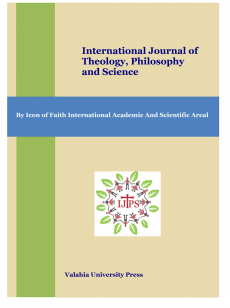An interpretation of Evil’s perception in the Freedom essay of Friedrich Schelling
An interpretation of Evil’s perception in the Freedom essay of Friedrich Schelling
Author(s): Georgios KARAKASISSubject(s): Christian Theology and Religion, German Idealism
Published by: Ideas Forum International Academic and Scientific Association
Keywords: Schelling; Ground; Existence; Evil; Freedom; Modern world;
Summary/Abstract: The aim of this paper is to bring into light the significance of Schelling’s Freedom Essay for our understanding of how evil is to be perceived and which its nature is. More specifically, in the first part we will start by presenting the distinction made by the German philosopher between the ground and the existence of God so as to show the way human being rises as pure potentiality from the ground of God. In the second part we will examine how what was a pure potentiality and blind will, namely the human being in the ground, enlightened by the rays of the understanding, of the Word as universal will, gets to know itself and become aware of its own willing as such. Once what was a blind will in the ground gets touched by the light of understanding, it is shone forth by the latter’s spirit. Hence, we witness the becoming of the human being from a mere selfhood to a personality; a radical change accompanied by the self-aware human being’s will to will either his subordination to what has made his self-awareness feasible or his decision to make himself the centre of all existence. Thus, the - firstly ground - grounded blind will becomes a powerful will able to freely will something, even though this something is evil. In the last part we will examine the challenges the evil sets in modern society and we will highlight the necessity of an interdisciplinary approach towards our understanding of what evil and its relation with modern society’s human being is.
Journal: International Journal of Theology, Philosophy and Science
- Issue Year: 1/2017
- Issue No: 1
- Page Range: 96 - 105
- Page Count: 10
- Language: English

